In today’s global marketplace, importing goods from China presents a wealth of opportunities for businesses and entrepreneurs. However, the journey from supplier to customer involves navigating complex logistics, shipping methods, and regulatory requirements. This comprehensive guide aims to equip you with essential knowledge on key considerations for importing from China, from selecting the right shipping method to understanding customs procedures. Learn how to optimize your logistics strategy, save costs, and foster strong relationships with freight forwarders, empowering your venture with the insights needed for a successful import operation. Whether you’re a seasoned importer or just getting started, this guide is designed to streamline your processes and enhance your profitability.
Related Article : Shipping From China To Turkmenistan

Choose the Right Shipping Method
Selecting the appropriate shipping method is crucial for optimizing your logistics strategy. The choice can significantly impact shipping costs, delivery times, and overall satisfaction with the importing process.
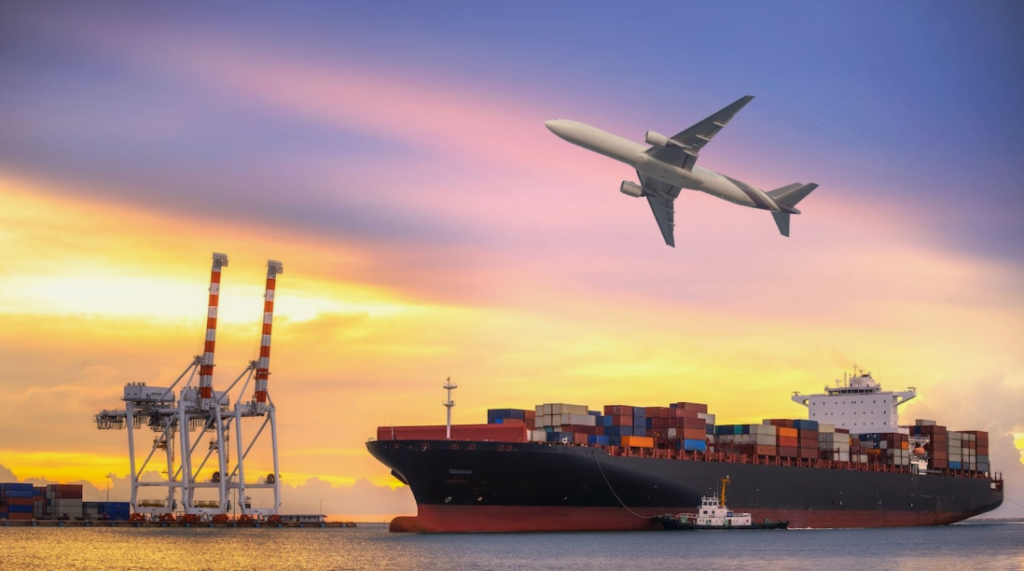
Ocean Freight vs. Air Freight
When deciding between ocean freight and air freight, consider the following attributes:
| Attribute | Ocean Freight | Air Freight |
|---|---|---|
| Cost | Generally more cost-effective, especially for large shipments | Higher shipping costs per kg or cbm |
| Speed | Slower (typically 2-6 weeks) | Faster (typically 1-7 days) |
| Capacity | Suitable for large volumes | Limited capacity for oversized items |
| Environmental Impact | More environmentally friendly per ton, though slower | Higher carbon footprint due to fuel consumption |
| Shipping Restrictions | Limited restrictions on goods | Stricter regulations on certain items |
Choosing between these two options will depend on your specific needs. For example, if you’re looking for a cost-effective solution for large volumes, ocean freight may be your best bet. In contrast, if you require quick delivery for high-value items, air freight could be the ideal choice.
FCL vs. LCL
Another critical aspect of ocean freight is the choice between Full Container Load (FCL) and Less than Container Load (LCL):
| Attribute | FCL | LCL |
|---|---|---|
| Cost | More cost-effective for large shipments | More affordable for smaller shipments |
| Speed | Generally faster as it can ship immediately once loaded | May take longer due to consolidation and deconsolidation |
| Handling | Less handling risk, leading to lower damage rates | Higher handling risk, increasing the chance of damage |
| Flexibility | Less flexible for small shipments | More flexible for varying volumes |
If your shipment volumes are substantial, FCL is often the more efficient choice. In contrast, LCL can be advantageous for smaller shipments that do not require an entire container.
Factors to Consider
When selecting a shipping method, also consider the following factors:
- Nature of Goods: Fragile items may benefit from air freight’s faster shipping times.
- Budget Constraints: Evaluate your budget versus urgency to find a balance.
- Delivery Deadlines: Align your shipping choice with your delivery requirements.
- Customs Regulations: Be aware of the import regulations in your destination country.
You may be interested in the following related articles:
- Why Ocean Shipping is Better Than Other Shipping Methods
- The Ultimate Guide to Container Shipping Costs from China to Ghana in 2024
- Everything You Need to Know About Door to Door Shipping from China to Cameroon
- Tips to Find the Cheapest Shipping Company from China to Tanzania
- How to Choose the Cheapest Shipping Company from China to Angola
- Container Shipping Costs from China to Nigeria: What You Need to Know
Find a Reliable Local Freight Forwarder in China
Partnering with a reputable local freight forwarder is essential for ensuring smooth logistics processes when importing goods from China.
Benefits of Using a Chinese Freight Forwarder
Employing a local freight forwarder in China comes with several advantages:
- Local Expertise: Knowledge of local logistics, customs regulations, and shipping routes.
- Cost-Efficiency: Ability to negotiate better rates due to established relationships with carriers.
- Language Barrier: Overcoming language hurdles in communication with suppliers.
- Personalized Service: Tailored solutions that fit your specific shipping needs.
What to Look for in a Freight Forwarder
When evaluating potential freight forwarders, keep these criteria in mind:
- Experience: Look for a freight forwarder with a proven track record in your industry.
- Certifications: Ensure they have the necessary certifications, such as NVOCC (Non-Vessel Operating Common Carrier) licenses.
- Insurance Services: Verify that they offer Insurance Services to protect your shipment against potential losses during transit.
- Customs Clearance Expertise: A forwarder well-versed in Customs Clearance procedures can expedite the process.
Negotiating the Best Rates
To secure the best rates, consider the following negotiation tips:
- Volume Commitments: Offer ongoing business for lower rates on bulk shipments.
- Flexible Shipping Dates: Be open to alternative shipping schedules to take advantage of lower rates.
- Comparison: Solicit quotes from multiple freight forwarders to leverage competitive pricing.
- Build Relationships: Cultivating a strong rapport with your freight forwarder can lead to better service and pricing down the line.
By carefully choosing the right shipping method and partnering with a reliable local freight forwarder in China, you can streamline your importing process, reduce costs, and ensure timely delivery of your goods. If you’re looking for A Highly Professional, Cost-effective And High-quality, One-Stop International Logistics Service Provider For Global Trader, consider Dantful International Logistics for your shipping needs. Explore their services for Door to Door Shipping, Customs Clearance, and Insurance Services to simplify your import journey.
Dantful International Logistics Services:
- Dantful Ocean Freight Services
- Air Freight From China
- Amazon FBA Freight Forwarding
- WAREHOUSE Services
- One-Stop Customs Clearance Solution
- Cargo Insurance Services in China
- DDP Shipping Services By Dantful Logistics
- Out of Gauge Cargo Transportation Shipping Services
Optimize Your Packaging and Utilization
Effective packaging not only protects your goods during transit but also can significantly impact shipping costs and overall logistics efficiency.
Proper Packaging to Minimize Damage
The importance of proper packaging cannot be overstated. Here are key considerations to ensure your products arrive safely:
- Use Quality Materials: Invest in high-quality packaging materials that can withstand the rigors of shipping. Consider options like reinforced boxes, bubble wrap, and foam inserts.
- Design for Protection: Custom packaging solutions that fit the specific dimensions of your products can reduce movement within the box, minimizing the risk of damage.
- Labeling: Ensure that packages are labeled clearly for handling instructions, especially fragile items. This aids in proper handling and reduces the likelihood of mishaps.
Maximizing Container Space
Efficient use of container space directly impacts shipping costs. Employ the following strategies to optimize space:
- Flat Packing: Where possible, use flat packing techniques for items like furniture or other modular products that can be disassembled.
- Use of Pallets: Organize items on pallets to facilitate stacking and maximize vertical space utilization within the container.
- Container Size: Choose the right-sized container based on your shipment volume. Using a container that is too large can lead to wasted space and increased costs.
Calculating Dimensional Weight
Dimensional weight (DIM weight) is a critical factor in freight costs. Understanding how to calculate it can help in selecting the most cost-effective shipping method:
Calculation Method: DIM weight is calculated by multiplying the dimensions of the package (length × width × height) and dividing by a standard DIM factor (often 166 for domestic and 139 for international shipments).

-
Choose Wisely: Compare the actual weight with the DIM weight and use the greater value for shipping cost calculations. This is particularly vital when shipping lightweight but bulky items.
Plan Ahead for Shipments
Strategic planning can dramatically improve your import logistics and reduce unexpected costs. Here are vital aspects to consider:
Booking Containers in Advance
Securing your shipping container well in advance is essential for timely delivery. The benefits include:
- Guaranteed Space: Early booking ensures that you have the necessary space secured in your preferred shipping line, particularly during busy seasons.
- Cost Management: Advanced booking often means lower rates, as last-minute arrangements can lead to premium charges.
Avoiding Peak Season Surcharges
Shipping costs can spike during peak seasons, making it crucial to plan accordingly. Strategies include:
- Understand Seasonal Trends: Familiarize yourself with peak shipping seasons, such as pre-holiday periods or major trade shows, and plan your shipments accordingly.
- Flexibility in Scheduling: If possible, schedule shipments during off-peak times to avoid surcharges and enjoy lower rates.
Staggering Shipments
Implementing a staggered shipping schedule can help mitigate risks associated with shipping delays and inventory shortages:
- Break Down Orders: Instead of shipping large orders all at once, consider breaking them down into smaller, more manageable shipments. This reduces the impact of potential delays on your overall inventory.
- Adjust Based on Demand: Monitor market demand and adjust your shipment schedule to align with sales patterns, ensuring that inventory levels are optimized without excessive surplus.
By concentrating on packaging optimization and shipment planning, you can significantly enhance your importing processes. For businesses looking to streamline their logistics, Dantful International Logistics offers comprehensive solutions that include Warehouse Services, Air Freight, and Customs Clearance to facilitate these strategies effectively. Engaging a professional freight forwarder like Dantful can help you navigate the complexities of international shipping while keeping your costs manageable.
Leverage Your Freight Forwarder’s Expertise
A knowledgeable freight forwarder can be an invaluable asset, helping to navigate the complexities of international shipping. Their expertise can facilitate smoother operations and enhance your overall importing experience.
Customs Clearance Assistance
Navigating customs regulations can be challenging, especially in a country like Turkmenistan, where regulations may change frequently. A proficient freight forwarder offers several benefits in this area:
- Regulatory Knowledge: They stay updated with the latest customs regulations and ensure compliance with all legal requirements, reducing the risk of delays or penalties.
- Documentation Management: Freight forwarders assist in preparing and filing necessary documentation, such as commercial invoices, packing lists, and customs declarations, which are crucial for smooth customs clearance.
- Customs Brokers: Many freight forwarders have in-house customs brokers or partnerships with licensed brokers who can represent you at customs and facilitate the clearance process, simplifying communication with local authorities.
Tracking and Monitoring
Visibility throughout the shipping process is critical for managing expectations and addressing potential issues proactively. Here’s how freight forwarders enhance tracking capabilities:
- Real-Time Updates: Advanced tracking systems provide real-time updates on shipment status, including location and estimated arrival times. This transparency helps you manage inventory and plan for receiving goods.
- Proactive Problem Solving: If issues arise, such as delays or customs inspections, your freight forwarder can quickly respond and provide solutions, minimizing disruption to your supply chain.
- Integrated Systems: Many freight forwarders offer integrated tracking solutions that allow you to monitor shipments through a single platform, improving efficiency and ease of access.
Customized Solutions
Every business has unique shipping needs, and a competent freight forwarder can tailor their services accordingly:
- Tailored Shipping Plans: Your freight forwarder can design a customized shipping strategy based on your specific requirements, including factors like shipment frequency, volume, and destination.
- Flexible Solutions: They can offer tailored options for additional services such as warehousing, packaging, and last-mile delivery, ensuring that every aspect of your logistics aligns with your operational needs.
- Consultative Approach: A good freight forwarder will take the time to understand your business objectives and provide consultative support, helping you make informed decisions that enhance your logistics efficiency.
Understand Import Taxes and Duties in Turkmenistan
When importing goods into Turkmenistan, understanding the import taxes and duties is essential for accurate cost forecasting and compliance with local regulations.
Overview of Import Duties
-
Customs Duty Rates: Import duties in Turkmenistan vary depending on the product category. These rates typically range from 0% to 30%, with specific items subject to different tariffs. It’s crucial to classify your goods accurately to determine the applicable duty rate.
-
Value Added Tax (VAT): A VAT of 15% is applied to most goods entering Turkmenistan. This tax is calculated based on the value of the goods, including the customs duty.
Key Considerations
-
Valuation of Goods: Ensure that the declared value of your goods is accurate, as customs authorities may conduct audits. Misrepresentation can lead to penalties or seizures.
-
Exemptions and Reductions: Some goods may qualify for exemptions or reduced duty rates (e.g., essential goods, humanitarian aid). Familiarize yourself with such provisions to optimize your import costs.
-
Documentation Requirements: Proper documentation, including commercial invoices, shipping documents, and certificates of origin, is vital for determining duty amounts and ensuring compliance during customs clearance.
Planning for Costs
-
Budgeting for Duties and Taxes: Include potential import duties and VAT in your overall budget for importing goods. Understanding these costs upfront can prevent unexpected expenses.
-
Consult with Experts: Collaborate with your freight forwarder or a customs consultant to gain insights into the latest tax regulations and effective strategies to minimize duties and taxes legally.
By leveraging the expertise of a skilled freight forwarder and understanding the intricacies of import duties and taxes in Turkmenistan, businesses can enhance their logistics efficiency and ensure compliance with local laws. If you seek to streamline your import process further, consider partnering with Dantful International Logistics, known for offering comprehensive services tailored to meet the diverse needs of global traders. Their expertise in Customs Clearance and logistics can facilitate a seamless importing experience.
Explore Cost-Saving Opportunities
Identifying and leveraging cost-saving measures can significantly enhance the profitability of your import operations. Here are some strategies to consider:
Off-Peak Season Discounts
Shipping costs can fluctuate depending on the time of year. Taking advantage of off-peak seasons presents a prime opportunity for savings:
-
Understanding Demand Fluctuations: Familiarize yourself with peak shipping periods, such as pre-holiday seasons or major international trade events. During these times, rates tend to rise due to increased demand on shipping lines.
-
Scheduling Flexibility: If your business allows for flexibility in shipment timing, schedule your shipments during off-peak periods. This can often lead to lower rates and better service availability.
-
Negotiating with Freight Forwarders: Discuss off-peak shipping opportunities with your freight forwarder, as they may have existing relationships with carriers that offer discounts during less busy periods.
Bulk Shipping Rates
For businesses that regularly import large quantities, bulk shipping can lead to substantial savings:
-
Volume Discounts: Many freight forwarders and shipping lines offer tiered pricing based on shipment volume. The more you ship, the lower your per-unit cost can be.
-
Long-Term Contracts: If you have consistent shipping needs, negotiate long-term contracts with your freight forwarder or shipping line to secure bulk discounts. These agreements can provide predictability in pricing and service commitment.
-
Strategic Inventory Management: Plan your shipments in advance to consolidate orders, allowing you to meet bulk shipping thresholds without incurring additional logistical complexities.
Consolidation Services
Consolidation services allow you to combine multiple smaller shipments into a single larger shipment, offering several cost advantages:
-
Shared Container Costs: By consolidating shipments with other importers, you can share the costs associated with container usage. This approach is especially beneficial for businesses that do not have enough volume to fill an entire container by themselves.
-
Streamlined Logistics: Fewer shipments can simplify your logistics processes, reducing handling and administrative costs. Consolidated shipments often lead to fewer customs clearance procedures, which can save time and money.
-
Improved Freight Forwarder Relationships: Utilizing your freight forwarder’s consolidation services can strengthen your partnership, as they can provide tailored solutions that fit your business needs.
Maintain a Strong Relationship with Your Freight Forwarder
Building and nurturing a robust relationship with your freight forwarder is key to long-term success in your importing endeavors. The following approaches can help solidify this relationship:
Open Communication
Effective communication serves as the foundation of a successful partnership:
-
Regular Updates: Keep in touch with your freight forwarder regarding any changes in your shipping needs, schedules, or product details. Regular check-ins foster transparency and help address potential issues before they escalate.
-
Clarifying Expectations: Clearly articulate your expectations regarding service levels, costs, and timelines. Ensuring that both parties are aligned can prevent misunderstandings and enhance service quality.
Providing Accurate Information
Accurate information exchange is crucial for seamless logistics operations:
-
Detailed Shipment Information: Provide comprehensive details about your products, including dimensions, weights, and handling requirements. Accurate data enables your freight forwarder to plan effectively and avoid unnecessary complications.
-
Timely Updates: Notify your freight forwarder of any changes to shipment schedules or product specifications as soon as possible. Timely information allows them to adjust logistics plans accordingly.
Giving Feedback and Suggestions
Constructive feedback plays an essential role in maintaining a healthy working relationship:
-
Acknowledging Good Service: When your freight forwarder meets or exceeds expectations, share your appreciation. Positive feedback reinforces good practices and encourages continued high service levels.
-
Addressing Concerns: If issues arise, communicate your concerns directly and constructively. Discussing challenges openly allows your freight forwarder to address them and find solutions together, ultimately enhancing the partnership.
-
Collaborative Improvement: Share suggestions for enhancing services or processes. Many freight forwarders value customer input and may implement changes based on your feedback, leading to improved efficiency and satisfaction.
By strategically exploring cost-saving opportunities and actively managing your relationship with your freight forwarder, you can optimize your import processes, reduce expenses, and ensure a reliable logistics framework. Dantful International Logistics is dedicated to supporting your import journey with tailored solutions, including Insurance Services, Warehouse Services, and DDP Shipping Services, facilitating cost efficiency and operational excellence in your logistics efforts.
FAQs
1. What are the main shipping methods when importing from China?
When importing from China, the primary shipping methods are ocean freight and air freight. Ocean freight is generally more cost-effective for large shipments, while air freight is faster but comes with higher costs. Additionally, you can choose between Full Container Load (FCL) for larger volumes or Less than Container Load (LCL) for smaller shipments.
2. How do I choose the right freight forwarder in China?
When selecting a reliable freight forwarder, consider their experience, certifications, insurance services, and customs clearance expertise. A reputable freight forwarder can help navigate local regulations, negotiate better rates, and provide personalized service tailored to your shipping needs.
3. What factors should I consider when optimizing my packaging?
To optimize packaging, use high-quality materials to prevent damage, design packaging that minimizes movement during transit, and ensure clear labeling for fragile items. Maximizing container space by using flat packing techniques and pallets is also essential.
4. How are import taxes and duties calculated in Turkmenistan?
Import duties in Turkmenistan vary by product category and typically range from 0% to 30%. A Value Added Tax (VAT) of 15% is applied to most goods. Ensure accurate valuation of your goods and be aware of any exemptions or reductions that may apply.
5. What are the benefits of consolidating shipments?
Consolidating shipments allows multiple smaller shipments to be combined into a single larger one, which can lead to cost savings by sharing container expenses, streamlining logistics processes, and reducing the number of customs clearance procedures.
6. How can I build a strong relationship with my freight forwarder?
To foster a positive relationship, maintain open communication, provide accurate and timely information, and give constructive feedback. Acknowledging good service and discussing challenges collaboratively can strengthen your partnership with your freight forwarder.
7. What services does Dantful International Logistics provide?
Dantful International Logistics offers a wide range of services, including Customs Clearance, Insurance Services, Warehouse Services, and Door to Door Shipping, ensuring a comprehensive solution for all your logistics needs when importing from China.
8. How can I save costs when importing from China?
To save costs, consider shipping during off-peak seasons, taking advantage of bulk shipping rates, and utilizing consolidation services. These strategies can help reduce overall shipping expenses and enhance your profitability.

Young Chiu is a seasoned logistics expert with over 15 years of experience in international freight forwarding and supply chain management. As CEO of Dantful International Logistics, Young is dedicated to providing valuable insights and practical advice to businesses navigating the complexities of global shipping.
The other language versions of this article
- كيفية توفير المال مع شركة شحن من الصين إلى تركمانستان
- Hoe u geld kunt besparen met een expediteur van China naar Turkmenistan
- Comment économiser de l’argent avec un transitaire de Chine vers le Turkménistan
- So sparen Sie Geld mit einem Spediteur von China nach Turkmenistan
- Come risparmiare denaro con uno spedizioniere dalla Cina al Turkmenistan
- Cómo ahorrar dinero con un transportista de China a Turkmenistán
- Como economizar dinheiro com um despachante de carga da China para o Turcomenistão
- Как сэкономить деньги с экспедитором из Китая в Туркменистан
- Çin’den Türkmenistan’a Bir Taşımacılık Komisyoncusuyla Nasıl Para Tasarrufu Yapılır








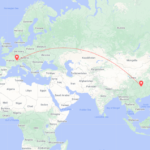
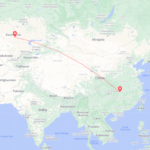
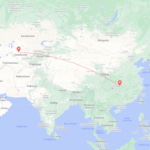
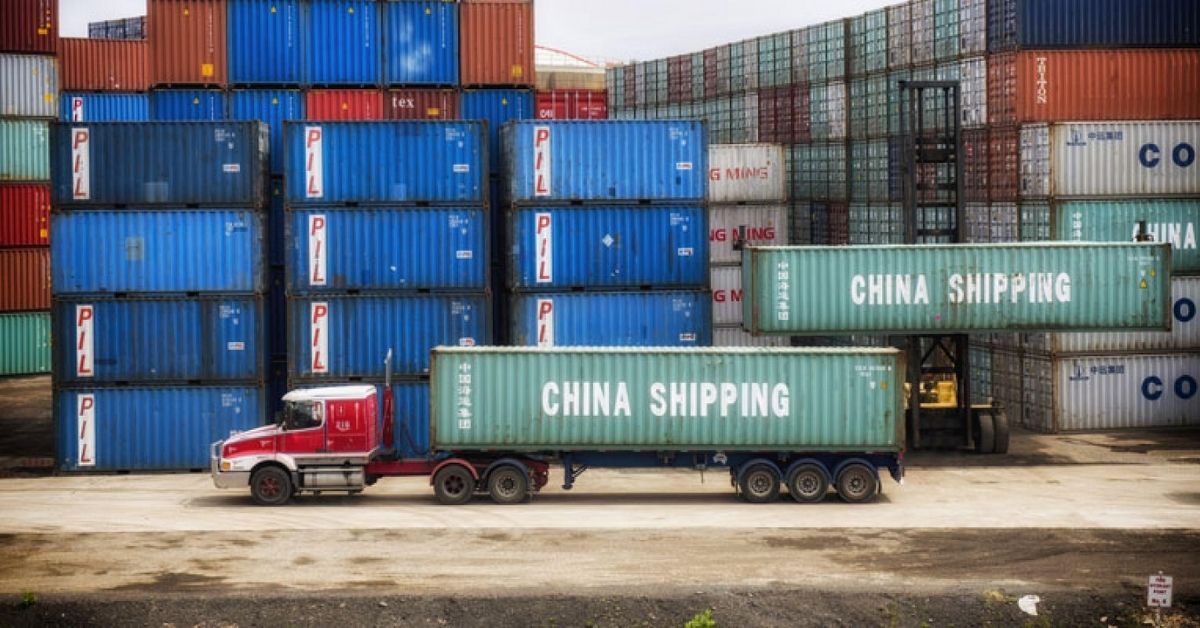
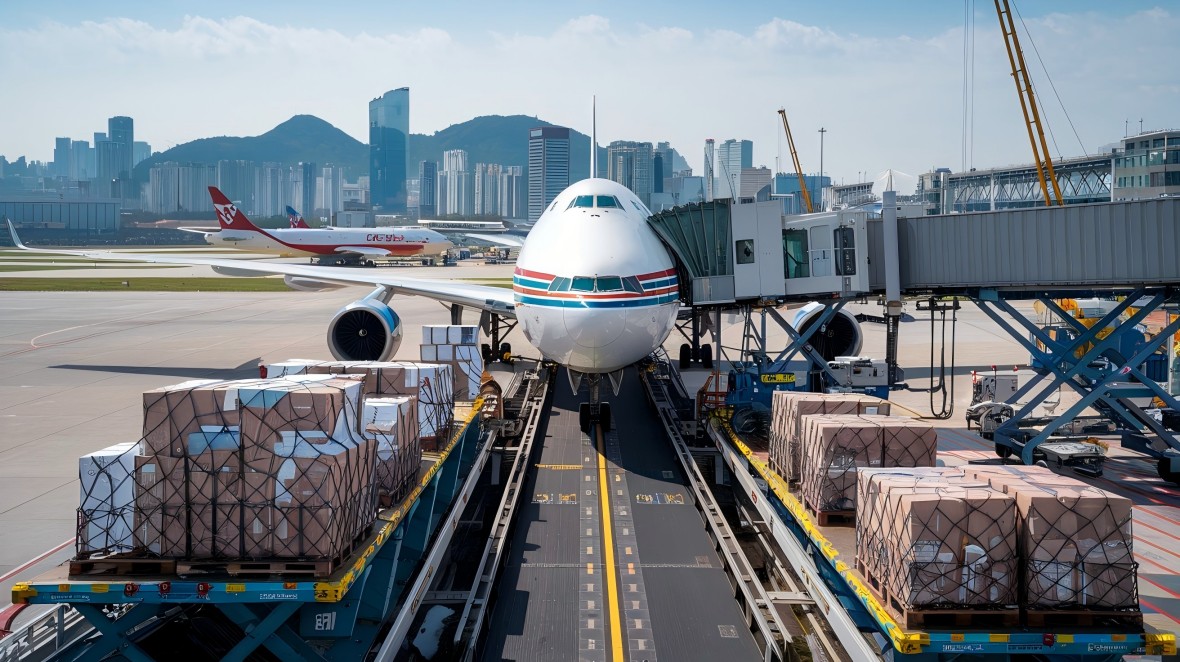
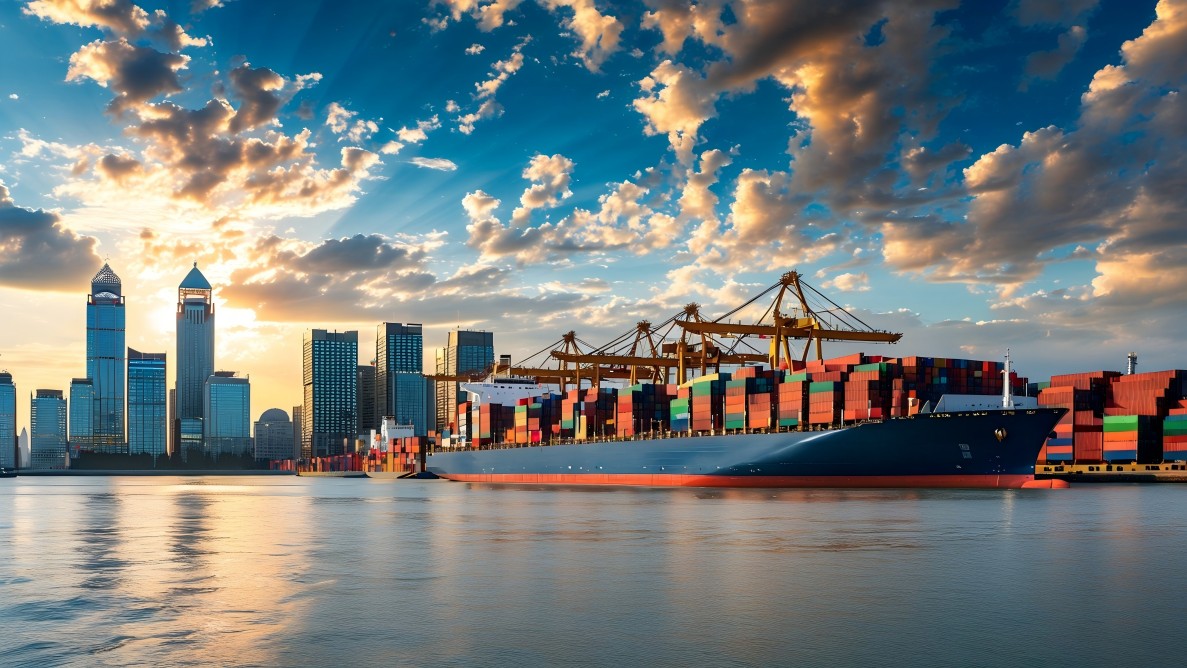
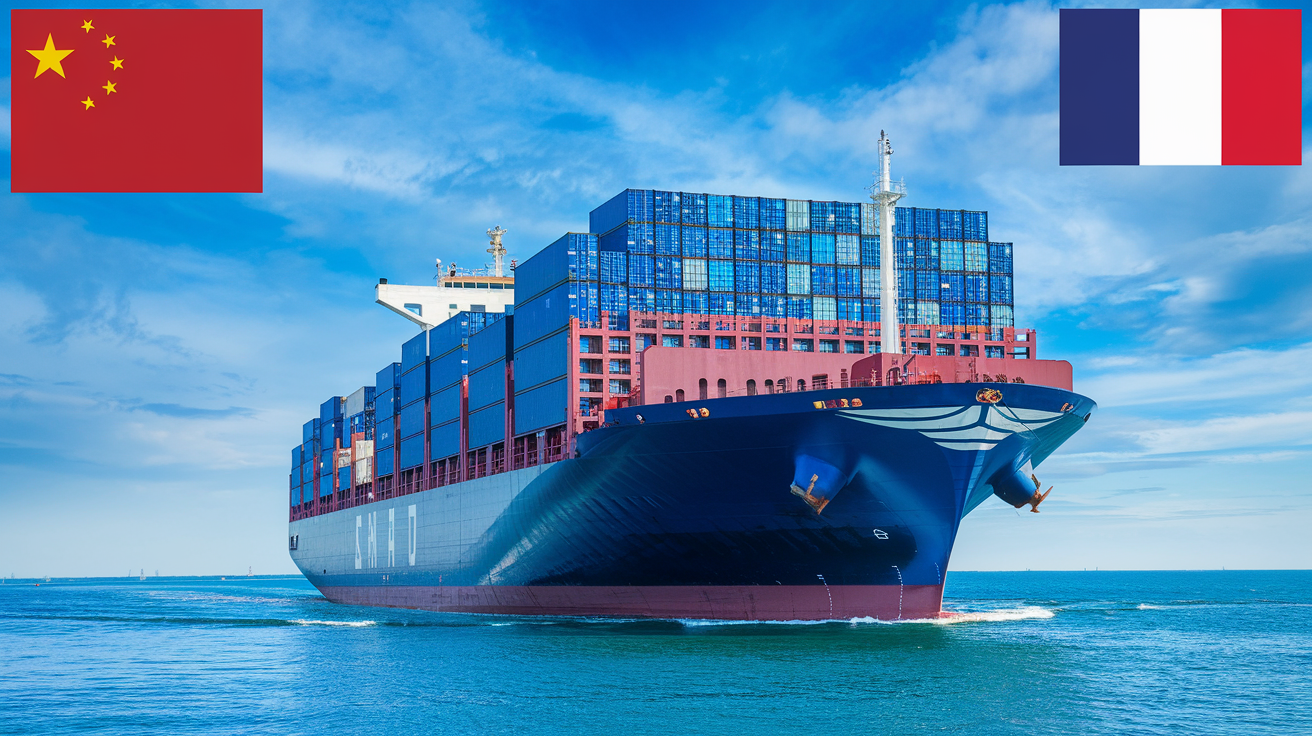






 Afrikaans
Afrikaans Shqip
Shqip አማርኛ
አማርኛ العربية
العربية Հայերեն
Հայերեն Azərbaycan dili
Azərbaycan dili Euskara
Euskara Беларуская мова
Беларуская мова বাংলা
বাংলা Bosanski
Bosanski Български
Български Català
Català Cebuano
Cebuano Chichewa
Chichewa 简体中文
简体中文 繁體中文
繁體中文 Corsu
Corsu Hrvatski
Hrvatski Čeština
Čeština Dansk
Dansk Nederlands
Nederlands English
English Esperanto
Esperanto Eesti
Eesti Filipino
Filipino Suomi
Suomi Français
Français Galego
Galego ქართული
ქართული Deutsch
Deutsch Ελληνικά
Ελληνικά Kreyol ayisyen
Kreyol ayisyen Harshen Hausa
Harshen Hausa Ōlelo Hawaiʻi
Ōlelo Hawaiʻi עִבְרִית
עִבְרִית हिन्दी
हिन्दी Hmong
Hmong Magyar
Magyar Íslenska
Íslenska Igbo
Igbo Bahasa Indonesia
Bahasa Indonesia Gaeilge
Gaeilge Italiano
Italiano 日本語
日本語 Basa Jawa
Basa Jawa ಕನ್ನಡ
ಕನ್ನಡ Қазақ тілі
Қазақ тілі ភាសាខ្មែរ
ភាសាខ្មែរ 한국어
한국어 كوردی
كوردی Кыргызча
Кыргызча ພາສາລາວ
ພາສາລາວ Latin
Latin Latviešu valoda
Latviešu valoda Lietuvių kalba
Lietuvių kalba Lëtzebuergesch
Lëtzebuergesch Македонски јазик
Македонски јазик Malagasy
Malagasy Bahasa Melayu
Bahasa Melayu മലയാളം
മലയാളം Maltese
Maltese Te Reo Māori
Te Reo Māori मराठी
मराठी Монгол
Монгол ဗမာစာ
ဗမာစာ नेपाली
नेपाली Norsk bokmål
Norsk bokmål پښتو
پښتو فارسی
فارسی Polski
Polski Português
Português ਪੰਜਾਬੀ
ਪੰਜਾਬੀ Română
Română Русский
Русский Samoan
Samoan Gàidhlig
Gàidhlig Српски језик
Српски језик Sesotho
Sesotho Shona
Shona سنڌي
سنڌي සිංහල
සිංහල Slovenčina
Slovenčina Slovenščina
Slovenščina Afsoomaali
Afsoomaali Español
Español Basa Sunda
Basa Sunda Kiswahili
Kiswahili Svenska
Svenska Тоҷикӣ
Тоҷикӣ தமிழ்
தமிழ் తెలుగు
తెలుగు ไทย
ไทย Türkçe
Türkçe Українська
Українська اردو
اردو O‘zbekcha
O‘zbekcha Tiếng Việt
Tiếng Việt Cymraeg
Cymraeg יידיש
יידיש Yorùbá
Yorùbá Zulu
Zulu